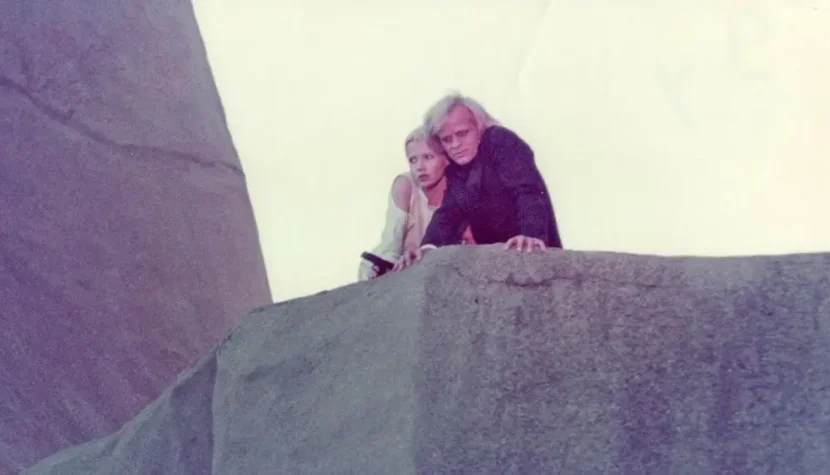ZOO ZÉRO. Arty surrealism with a touch of science fiction

“Zoo Zéro” resembles a parody of a surrealist film, only not a particularly funny one.
Summarizing the plot of “Zoo Zéro” is almost impossible, as Fleischer’s film lacks a traditional narrative, but let’s try. The story takes place after an outbreak of a dangerous disease in an unknown country (likely a regime or military junta, as the radio constantly reports on the health of the assumed state leader, a nameless general). Eva is a popular singer performing in a decadent nightclub called Noah’s Ark, where the guests wear animal masks. The singer’s surroundings are a menagerie of various oddballs, among whom stand out: her dwarfism-affected manager Uwe, a philosophizing ventriloquist chauffeur Yves, and Yavé, a mysterious zoo manager who comes to the club to listen to Eva.

Alain Fleischer studied contemporary literature, linguistics, semiology, and anthropology at the Sorbonne and the École des Hautes Études en Sciences Sociales. He began his film career in the 1960s, working as a screenwriter and director (sometimes also as editor and cameraman) on medium- and short-length films, including “Un film inachevé” (1962), “Un hiver à Majorque” (1965), and “Comment pouvons-nous le supporter?” (1969). He made his feature-length debut with “Montage IV” (1968), and since then, he has directed dozens of fiction and documentary films screened at international festivals (Cannes, Venice, Locarno, Berlin, Rotterdam, Montreal, Toronto, etc.). He has also lectured on visual arts and film theory at universities.
“Zoo Zéro” is a bizarre mix of surrealism and science fiction. From the science fiction genre, it borrows neither technical inventions nor extraordinary characters, but rather a post-apocalyptic reality. Everything else is derived from surrealism: a spoken intro in the style of Andrzej Kondratiuk’s “Hydrozagadka” (1970) (here, instead of Iga Cembrzyńska, we hear an anonymous voice filtered through a vocoder), eccentric characters, grotesque dialogues on the verge of gibberish, sequences rich with heavy-handed symbolism, instrumental use of music (Mozart’s “The Magic Flute”), and frames shot in cool blues by Bruno Nuytten (the cinematographer behind Andrzej Żuławski’s unforgettable horror film “Possession” [1981]).

Despite an interesting visual style, which is the film’s greatest asset (it may have influenced “Bunker Palace Hôtel” [1989] by Enki Bilal and “Delicatessen” [1991] by Jean-Pierre Jeunet and Marc Caro), watching it feels like torture. It’s hard to speak of any story here: “Zoo Zéro” is a collection of loosely connected scenes tied together by Eva wandering through desolate cityscapes. However, this wandering leads nowhere and offers nothing, as the entire film suffers from an overemphasis on style at the expense of substance in the worst possible way. It’s a shame about the excellent actors, especially Alida Valli, reduced to playing a giggling idiot, and Klaus Kinski, whose charisma and great talent are barely utilized.

